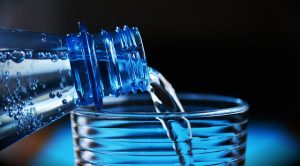Water is essential for life, and staying hydrated is crucial for maintaining good health. Our bodies are made up of about 60% water, and every system in our body relies on it to function properly. Drinking enough water can help regulate body temperature, transport nutrients, remove waste, and keep our organs functioning properly. In this article, we will explore the many benefits of drinking water and how it can improve our overall health and well-being.
The Role of Water in Maintaining a Healthy Body
 Water plays a vital role in maintaining a healthy body. It helps regulate body temperature by sweating and releasing heat from the body. Water also helps transport nutrients throughout the body, allowing cells to function properly. Additionally, water helps remove waste from the body through urine and bowel movements.
Water plays a vital role in maintaining a healthy body. It helps regulate body temperature by sweating and releasing heat from the body. Water also helps transport nutrients throughout the body, allowing cells to function properly. Additionally, water helps remove waste from the body through urine and bowel movements.
When we don’t drink enough water, our bodies become dehydrated, which can lead to a range of health problems. Dehydration can cause fatigue, headaches, dizziness, and muscle cramps. It can also lead to more serious conditions such as kidney stones and heatstroke.
The Impact of Hydration on Cognitive Function
Studies have shown that dehydration can negatively affect cognitive performance. When we are dehydrated, our brains have to work harder to complete tasks, which can lead to decreased focus and mental clarity. Staying hydrated can improve cognitive function by helping us think more clearly and stay alert.
In one study, researchers found that even mild dehydration (1-3% loss of body weight) can impair cognitive performance in tasks that require attention, memory, and psychomotor skills. Another study found that drinking water before taking an exam improved test scores in college students.
The Benefits of Drinking Water for Skin Health
Drinking enough water is also important for maintaining healthy skin. Water helps keep skin hydrated and plump, which can reduce the appearance of fine lines and wrinkles. Dehydration can lead to dry, dull skin and premature aging.
In addition to drinking water, using a moisturizer can also help keep skin hydrated. However, moisturizers only work on the surface of the skin, while drinking water hydrates from the inside out.
The Link Between Water Consumption and Weight Loss
Drinking water can also help with weight loss. Studies have shown that drinking water before meals can help suppress appetite and reduce calorie intake. Additionally, drinking water can boost metabolism, which can help burn more calories throughout the day.
One study found that overweight women who increased their water intake lost more weight than those who did not. Another study found that drinking cold water can increase metabolism by up to 30%.
The Role of Water in Digestive Health
Water is essential for maintaining good digestive health. It helps keep food moving through the digestive system and prevents constipation. When we are dehydrated, our bodies absorb more water from the colon, which can lead to hard stools and constipation.
Drinking enough water can also help prevent other digestive issues such as acid reflux and stomach ulcers. Water dilutes stomach acid, making it less likely to cause irritation in the stomach lining.
Tips for Increasing Your Water Intake
If you struggle to drink enough water throughout the day, there are several practical tips you can try:
– Carry a reusable water bottle with you wherever you go
– Set reminders on your phone or computer to drink water
– Drink a glass of water before each meal
– Flavor your water with fruit or herbs to make it more appealing
– Eat foods with high water content such as fruits and vegetables
Drinking enough water is essential for maintaining good health and well-being. It helps regulate body temperature, transport nutrients, remove waste, improve cognitive function, maintain healthy skin, aid in weight loss, and promote good digestive health. By incorporating practical tips for increasing your water intake, you can prioritize hydration as a key component of a healthy lifestyle.








